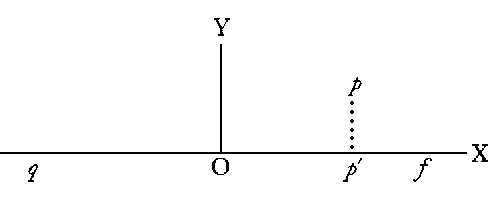Contents
| « Prev | Chapter CXLIV. Of the Punishment due to Mortal… | Next » |
CHAPTER CXLIV—Of the Punishment due to Mortal and Venial Sins respectively in regard to the Last End
MAN may sin in either of two ways, either so that the intention of his mind be quite turned away from subordination to God, the final good, and that is a mortal sin: or otherwise so that, while the mind’s intention remains fixed on the final end, some obstacle is put in the way to retard its free movement to the end, and that is a venial sin.821821Presently described by St Thomas thus (n. 2): “The intention remains turned to the end, but is somewhat impeded by over-much adherence to the means.” As then the difference of punishments must be according to the difference of sins, it follows that whoever sins mortally must have for his punishment to be cast out from the attainment of his end; but he who sins venially is punished, not by being cast out, but by being retarded or experiencing difficulty in gaining his end; for so the equality of justice is preserved, in that as man, by sinning [venially], voluntarily turns aside from his end, so in suffering punishment, against his will, he should be impeded in the gaining of that end.822822 A fine se divertit but not avertit.

Let O be the origin of co-ordinates, representing man’s start in life. Let f be the last end. Let p be the position of a soul in venial sin; q the position of a soul in mortal sin. It will be seen that the soul at p has travelled praeter finem, not contra finem:it will have to he reduced to order by penance and pain, represented by the value of the ordinate p p’ along the axis of Y. On the other hand, q represents a soul that has wandered away in a negative direction, quite contra finem: if it leaves the body at that point, that soul is lost. By penance it has to be brought back to the origin at O, and so on to the positive side. Thus represented at the last day, by points moving to the left and to the right along the axis of X, as well as upwards along Y, the histories of human lives must make figures of wonderful complexity.
3. When any one attains a good thing that he was not intending, that is by luck and chance. If then he whose intention is turned away from the last end were to gain that last end, it would be by luck and chance, — which is an absurd thing to suppose, seeing that the last end is a good of intelligence, and luck and chance are inconsistent with intelligent action, because chance events come about without the direction of intelligence: it is absurd then to suppose intelligence gaining its end by an unintelligent method. He then will not gain his end, who by sinning mortally has his intention turned away from his last end.
5. In an orderly course of means leading up to an end such a relation obtains that, if the end is or is to be, the means thereto must be: if the means to the end are not forthcoming, neither will the end be forthcoming: for if the end could be secured without the means to the end being taken, it would be labour lost to seek the end by the taking of such means. But it is by arts of virtue, the chief element in which is an intention of the due end, that man attains to his last end and happiness (Chap. CXLI). Whoever then acts against virtue, and turns his back on his last end, it is proper for him to suffer deprivation of that end.
Hence it is said: Depart from me, all ye workers of iniquity (Matt. vii, 23).
315| « Prev | Chapter CXLIV. Of the Punishment due to Mortal… | Next » |